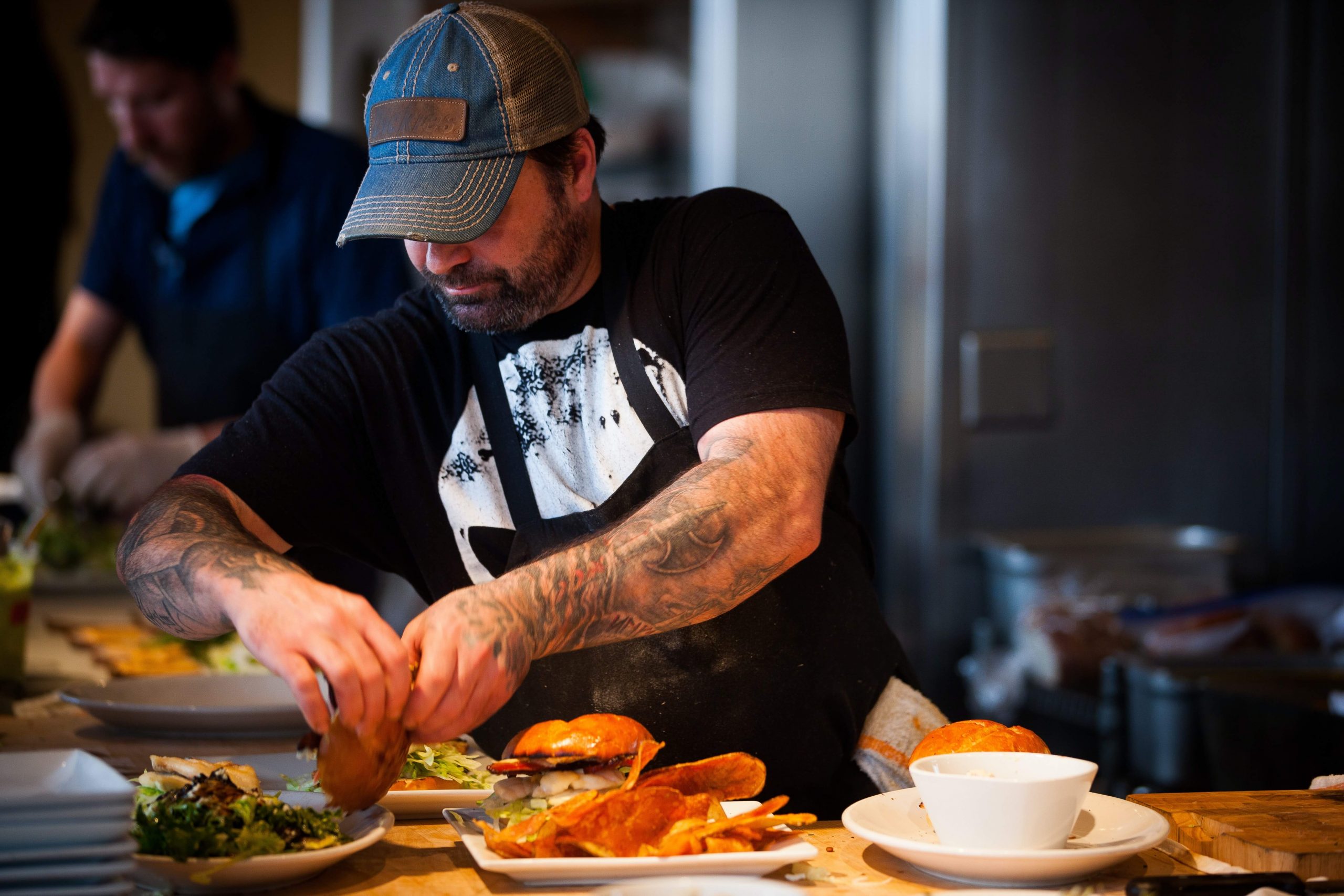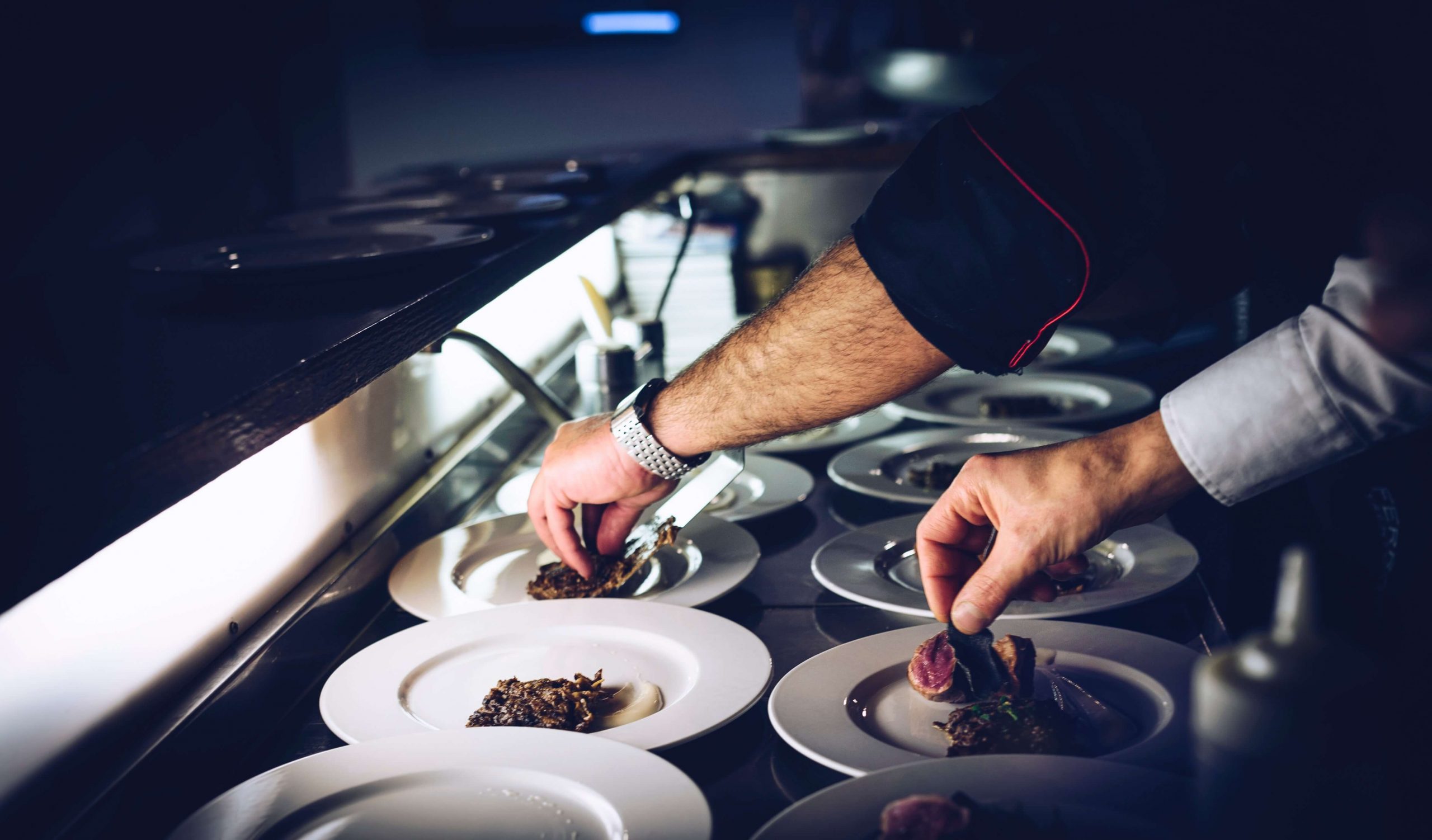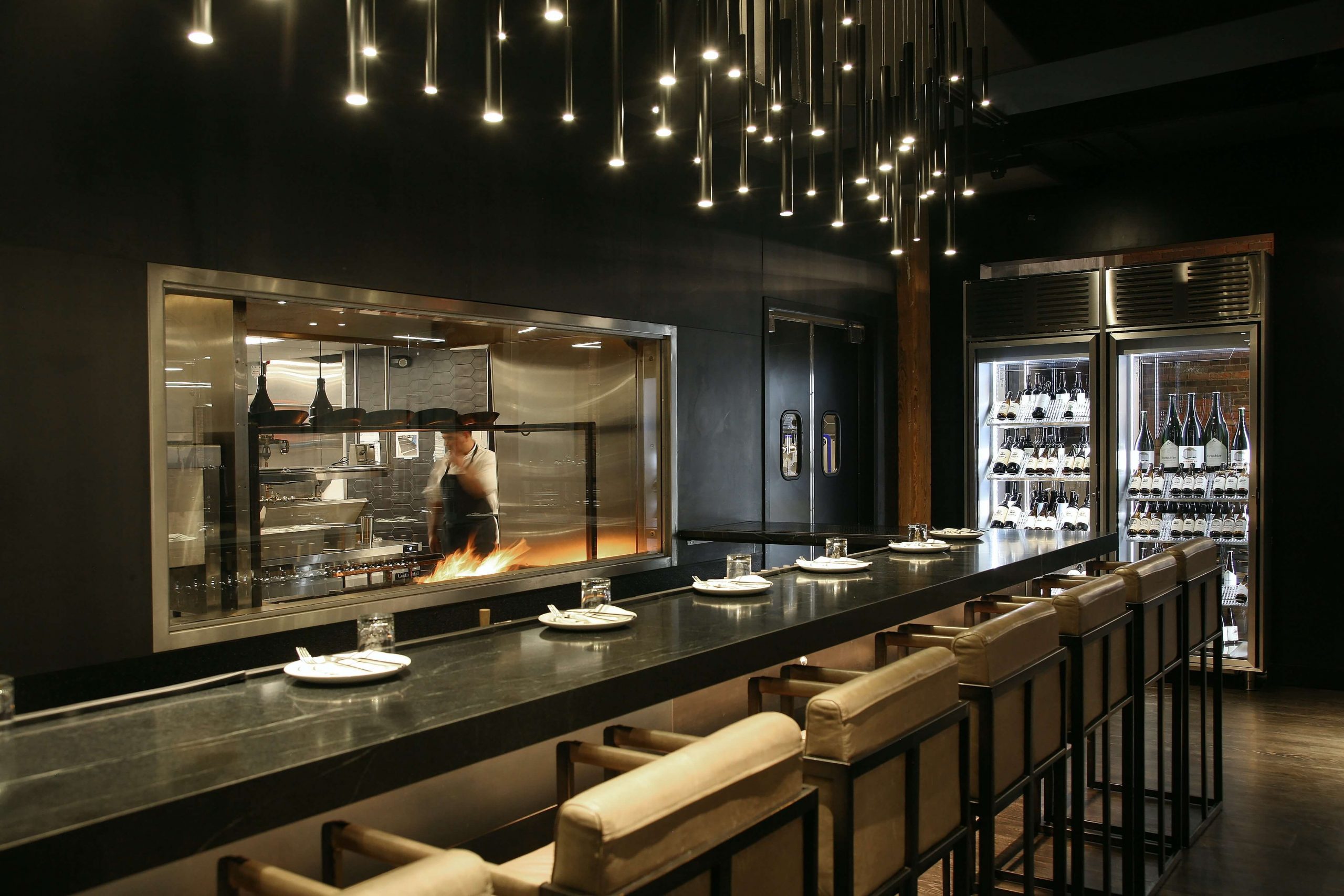
If your business deals with food — whether you work in retail, catering or manufacturing — then food safety is paramount. Get it right and you can protect your staff and your customers from food-borne illnesses and food poisoning. Get it wrong and you could end up making people seriously ill!
Thankfully there is a wealth of information and training that can help you navigate your way to safe levels of food handling and storage. And on top of that, there are some basic rules which you can follow which will give you a great foundation on which to build proper training and accreditations.
We’ve broken this down into 4 easily digestible principles for you and your business to follow in order to get instantly better food safety standards.
Cleaning your food preparation area is fundamental to good food safely. The key here is being thorough and consistent. You’ll need to clean all workspaces, utensils and equipment regularly (not just waiting until they look dirty!).
You’ll want to clean utensils, equipment and workspace in between dealing with raw and cooked foods (and always remember to use a different chopping board for raw and cooked food too). If you don’t clean in between, then bacteria from your raw food can be transferred to your cooked food, raising the risk of food poisoning.
It’s very important to do a thorough clean at the end of the day as well, as you need to reduce the risk of pests being attracted to crumbs and scraps left overnight.

In these pandemic times, the whole country has probably got much better at washing our hands, and understanding the importance of it. And hand washing is, of course, still a very important part of food safety.
Always ensure to wash your hands before you start preparing food, and after handling raw food.
It’s also important to tie your hair back to stop strands ending up in food. And remember that wearing clean clothes for each new shift is equally important.
Finally, try to wear new, food-safe gloves when preparing food. But remember to change gloves and wash your hands after handling any raw foods.
Where and how you store food is just as important as how you prepare food.
Make sure you keep raw and cooked foods in separate areas, and if you do need to keep them in the same fridge for example, make sure that any juice from raw meat or fish can’t leak onto cooked or ready-to-eat food. This means keeping it securely packaged and on the bottom shelf.
Refrigerators need to be between 0°C and 5°C, so it’s good to set them at 3°C or 4°C.
It’s also important to remember to label any foods so that you know when packaging was opened and when the best before and use by dates are for each food. It’s good practice to write your own use-by date on food that has been opened and needs to be used within a certain timescale.

First, make sure that you know which foods need washing and which don’t. Fruit and veg needs to be washed in cold water for example, but raw meat such as chicken and fish does not need to be washed. In fact, washing raw meat can spread the germs around the kitchen area.
When cooking food, ensure that the temperature throughout reaches at least 75°C. That way you’ll know that any nast germs inside have been killed.
What we’ve talked about here is really just the tip of the iceberg when it comes to food safety. It’s enough to get you started, but you’ll need to know more if you want to prepare food for the public or your own business.
We have many courses ourselves which you can take in order to build your knowledge and get accredited.
We have courses on everything from Level 1 Food Safety for Retail, Catering and Manufacturing through to Allergen Awareness and Supervising Food Safety Level 3. Those are just a few examples. We have an array of food safely training courses you can take. If you’d like help on figuring out which courses are best for you and your business, make sure you get in touch today.
After all, food safety isn’t something you can afford to delay in getting it right.
Call us today on 01179 866397 or get in touch today